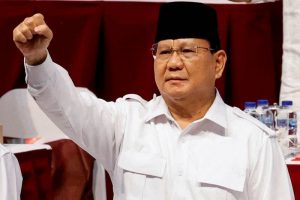(ATF) China implemented its Export Control Law on Tuesday December 1, which looks likely to have a major impact on the rare earths sector and possibly other industries.
The Export Control Law was endorsed by the Standing Committee of the 13th National People’s Congress. It highlights the Chinese government’s determination to “uphold the rule of law and maintain trade fairness in the context of counter-globalisation”, the Party says.
The law aims to safeguard China’s security and interests in the current “complex international trade environment”, otherwise known as a trade war with the United States and a global recession caused by the coronavirus pandemic.
The law, to be overseen by China Customs officials, is China’s first special law in the field of export control, aside from cultural relics.
It stipulates that the state will implement export control on dual-use items such as military products, nuclear, and other goods, technologies, services, rare earths and other items related to national security and interests, and fulfilling international obligations such as non-proliferation.
The Export Control Law means China now has a mechanism to further reduce rare earth exports, according to Netease news.
If so, it is likely to cause the global supply of rare earth elements to shrink, so the price of these mineral elements has continued to rise recently, as demand for rare earths has increased.
Rare earths are now widely used in automobiles, electronic equipment and other fields. Taking the automobile industry as an example, according to data from the China Automobile Manufacturers Association, in October 2020, China’s new energy vehicle production was 165,000, a year-on-year increase of 94%. Automobile production was 2.48 million units, an increase of 8.8% year-on-year. So, there is considerable local demand for these mineral elements.
‘Unified export control’
Officials in charge of the Guangdong General Administration of Customs told Nanfang Daily the country implements a unified export control system, which is managed by formulating control lists, directories or catalogues, and implementing export licences. If the consignor of export goods or an agent of a declared enterprise needs export-controlled goods, it shall obtain a licence issued by the National Export Control Administration Department and submit it to Customs for verification.
According to the new law, export operators will face the confiscation of illegal income and maximum confiscation of unlicensed export control items, export control items beyond the scope of the export license, or export control items that are prohibited for export. That could result in a fine of 10 times the amount of illegal business operations. And, if the circumstances are serious, they will also be ordered to suspend business for rectification until their qualifications for exporting related controlled items are revoked.
The person in charge emphasized that Customs officials will strictly verify export licences in accordance with the law, and if there is evidence that the exported goods may fall within the scope of export control, it will challenge companies on exported goods and, if necessary, submit an organisational identification to the national export control administration.
Transit, trans-shipment, transportation, re-export of controlled items, or export from bonded areas, export processing zones and other special customs supervision areas and export supervised warehouses, bonded logistics centres and other bonded supervision places to overseas, also need to comply with the law.
‘Cut to zero’
Now the law has passed, the price of rare earths have continued to rise, with some China hawks calling for rare earth exports to the US and Japan to be cut to zero, according to Phoenix TV.
From late November, the three main types of rare earths – terbium oxide, praseodymium oxide and dysprosium oxide – rose to 8-year, 3-year, and 5-year highs, respectively. Rare earths are regarded as strategic materials due to the Sino-US technology war, so this is a key factor in why they face export controls and why the price for these elements has soared.
People in various sectors around the world are understandably concerned, because rare earths are essential raw materials for many military, and high-tech industries, and China accounts for up to 95% of the world’s exports of rare earths, some of it imported, processed and re-exported.
Judging from the content of the Export Control Law, China’s national security is mainly protected by the export of sensitive materials and technologies on the control list, and its applicable objects include all enterprises in China and foreign-funded enterprises.
According to numerous local media reports, China wants to manage the export of rare earths, “which will make it difficult for American companies to obtain cheap and high-quality rare earth resources as before.”
This is seen as direct retaliation for US restrictions on Chinese flagship firms such as Huawei, and cutting access to modern technologies such as top-end computer chips. Of course, other countries besides the USA use rare earths. And many have been working to develop mines and processing facilities.
The United States allocated $209 million for development of its rare earth industry in 2019. And in November 2018, the United States and Australia, which had at least a sixth of the world’s rare earth reserves at that time, started cooperation. They have identified 15 mineral development projects that include rare earths.
South Korea, Ireland and others are making similar moves.























